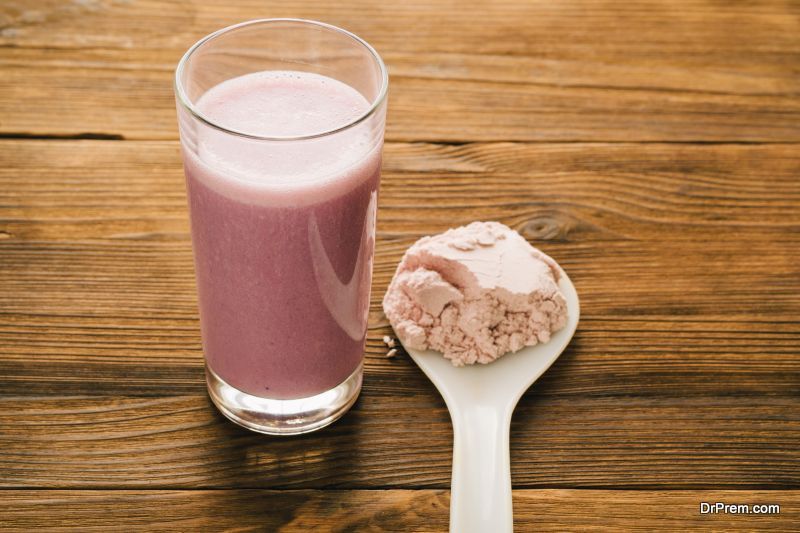If you are a gym member who goes for regular workouts, you probably might have over heard those fitness enthusiasts at the gym conversing about the types of protein powders and drinks that they prefer. These supplements are available in a variety of forms such as bars, gels, pre-mixed and even ready to drink shakes. These can very well serve as a nutritious substitute to the regular meals. It has been observed that one in every five men replace their regular meals with either health bars or protein drinks. And it isn’t just men; female athletes as well rely on protein supplements, especially those who undergo endurance training and bodybuilding.
Importance of protein:

Protein is one of the most important macronutrients that ensures smooth functionality of human body. It helps in rebuilding, repairing and making new body cells. As per most of the official nutrition organizations, the daily recommended protein intake for fit adults is between 10 – 35% of the total calorie intake. For example, if one’s daily diet consists of 2000 calories, then 100 grams of protein out of the total calories is adequate enough.
Too much protein is harmful:
According to the medical physician, MD, Vinh Nguyen, excess consumption of protein can be very hazardous, especially when the person consuming has underlying health conditions. Those who have condition where protein cannot be metabolized properly can become awfully ill and can even die, as partial metabolized protein increases the toxic levels in the body. Too much protein intake can also lead to ailments like constipation, dry mouth and even hair loss.
Acceptable protein levels:

There are no strict recommendations, when it comes to the acceptable levels of protein intake. One’s regular protein consumption capacity in the form of daily diet should be considered. Also the medical condition of that individual should be accounted for when suggesting any form of protein diet. It has been suggested that 1.2 grams of whey protein per kilograms of the body mass is a decent number. It is best to work with doctors and arrive at a definitive conclusion about the acceptable levels of protein in the form of supplements.
Finding the best protein supplement:
It can be overwhelming at times considering the number of options available in the market. Try asking yourself some of the below mentioned questions.
- What are you aiming for?
- Do you want to lose weight?
- Do you want to be a professional body builder?
Whether you are aiming at reducing your waist or gaining a few pounds, simply taking in protein won’t get you there. Narrow down your selection process by identifying the need of adding protein to your daily diet.




